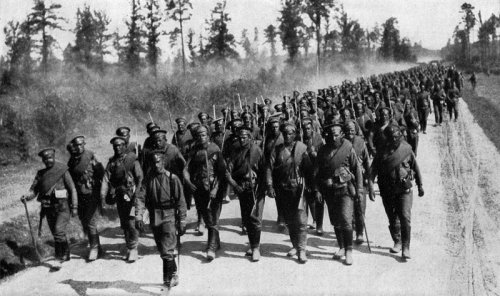
The wife of a Russian soldier received this letter, handwritten in cursive, during World War I:
My Dear and Beloved Wife!
I am sending you, my dear, a little note about myself from far away. I am, thank God, alive and well and feel good about myself. Write me about your health and the health of our dear children. If only you knew, how my heart longs for you and the children, if only I could hold you to my chest and kiss you from the bottom of my heart.
I ask you, my darling spouse, write me even more often. I live by your letters alone. As soon as I receive communication from you, I read it through and through several times, and it’s as if I see you and the children, as if I am right next to you.
Every day I pray to our Good Lord above for you and for our children, and I ask Him, so that He, the Merciful, would let us meet again. And I believe, that happy day is not far off. Or, my dearest one, do not despair but instead as soon as you receive my letter, write me back about everything in great detail, for I eagerly await your note. I rely on the Lord, Our God, that I will find you and the dear children in good health and happiness.
I am sending heartfelt greetings to all our friends and family. Let them not forget me, for I shall not forget them.
I remain your loving and faithful husband.
“What is unique about the letter is that the government, not the soldier, authored it,” writes Andrew Carroll in Behind the Lines (2005). “Recognizing the importance of mail to bolster spirits on the home front as well as the battlefield, the Russian government provided these prewritten letters, which soldiers could simply fold up and send to the designated recipient.”
